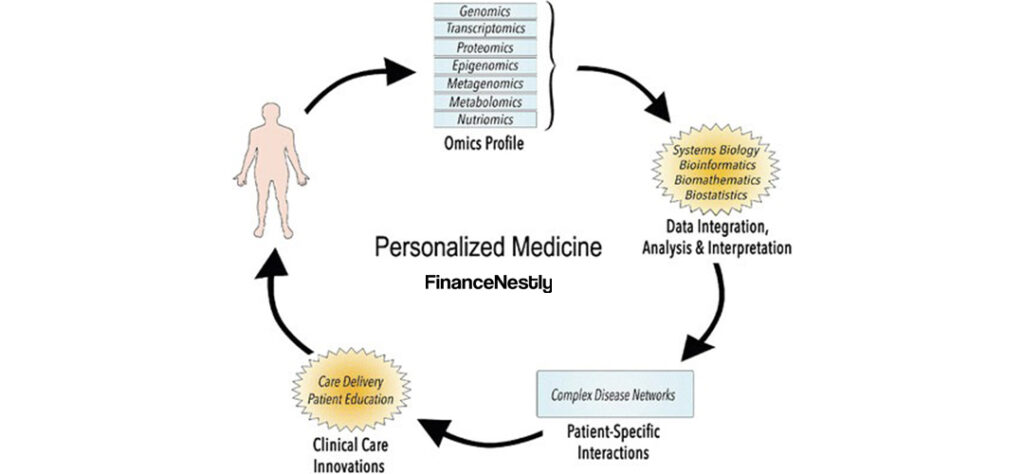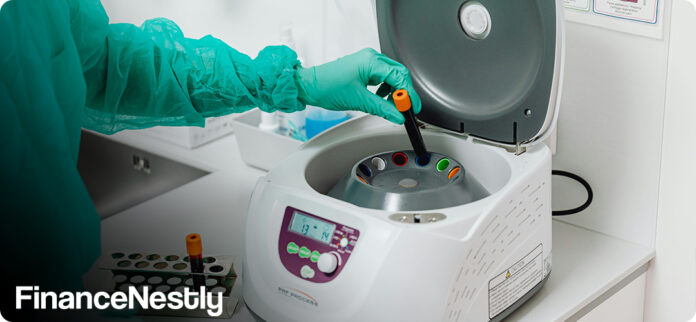The healthcare sector is undergoing a major transformation, driven by advancements in technology. From artificial intelligence (AI) and telemedicine to wearable devices and blockchain, healthcare technology is reshaping how care is delivered, managed, and experienced. As the landscape continues to evolve, investors are presented with new opportunities—and risks. Understanding the future of healthcare technology is essential for those looking to capitalize on the growing market. This article explores the latest trends in healthcare technology and provides key insights for investors who want to stay ahead of the curve.
1. The Role of Artificial Intelligence in Healthcare
Artificial intelligence is one of the most transformative forces in healthcare today. AI is revolutionizing everything from diagnostics to treatment planning and patient monitoring. One of the most promising areas of AI is medical imaging, where machine learning algorithms are being used to analyze scans and detect conditions like cancer, heart disease, and neurological disorders with greater accuracy than ever before.
AI-powered tools can also assist in drug discovery, helping researchers identify promising compounds much faster than traditional methods. For investors, AI presents an opportunity to back companies that are at the forefront of these innovations, such as those developing AI-driven diagnostic platforms or pharmaceutical firms using AI for drug development.
Another important application of AI is in predictive analytics, where AI models analyze vast amounts of patient data to predict disease outcomes, personalize treatment plans, and even anticipate health crises before they occur. With this level of precision, AI is transforming the way healthcare providers approach preventive care, making it a key area for investors looking to tap into future growth.
2. Telemedicine: A Permanent Shift in Healthcare Delivery
Telemedicine has seen significant growth in recent years, accelerated by the COVID-19 pandemic. What started as a necessity is quickly becoming a permanent fixture in healthcare delivery. Telehealth services allow patients to consult with doctors remotely, reducing the need for in-person visits and improving access to care, particularly for those in rural or underserved areas.
As more patients and providers become comfortable with virtual healthcare, the telemedicine market is expected to continue expanding. Investors can look to companies that provide telehealth platforms, medical devices for remote monitoring, and those offering virtual mental health services—an area that has gained traction due to increased awareness of mental health challenges.
The integration of telemedicine with AI and electronic health records (EHR) is creating an even more streamlined and effective healthcare experience. Patients will be able to access care from the comfort of their homes, with real-time data from wearable devices feeding into their EHRs and informing virtual consultations. This convergence of technologies presents lucrative investment opportunities, especially in companies that are creating integrated telemedicine solutions.

3. Wearable Devices: Revolutionizing Patient Monitoring
Wearable devices are rapidly gaining popularity in healthcare, providing individuals with the ability to monitor their health in real-time. Devices such as smartwatches and fitness trackers now offer features beyond basic activity tracking, such as heart rate monitoring, sleep tracking, and even blood oxygen level measurement. These devices can provide valuable data for healthcare providers and patients alike, leading to better-informed decision-making.
More advanced wearables are being developed to monitor specific health conditions, such as diabetes and cardiovascular diseases, in real-time. For example, continuous glucose monitoring (CGM) devices help diabetes patients track their blood sugar levels throughout the day, allowing for more personalized treatment plans. The integration of wearables with other technologies like AI and telemedicine opens up new possibilities for personalized healthcare, making wearables a key area of focus for healthcare technology investors.
As the technology advances, there is also potential for wearables to become tools for early diagnosis. Early detection of conditions such as arrhythmias, sleep apnea, and even mental health disorders could lead to earlier intervention and better outcomes. Investors should keep an eye on companies developing innovative wearable health technologies that are poised to shape the future of personalized medicine.
4. Blockchain Technology: Enhancing Security and Data Privacy
Blockchain technology is increasingly being explored in healthcare for its potential to enhance data security and privacy. In an industry that handles sensitive patient data, the ability to securely store and share information is critical. Blockchain can provide a decentralized and immutable ledger for medical records, ensuring that patient data is protected from unauthorized access and tampering.
Blockchain’s applications extend beyond data storage. It can also streamline the supply chain for pharmaceuticals, ensuring the authenticity of drugs and preventing counterfeiting. Additionally, blockchain could play a role in managing insurance claims, improving transparency and reducing fraud.
For investors, blockchain represents an exciting opportunity to support companies working on secure, decentralized healthcare platforms. As regulations surrounding data privacy and security tighten, the demand for blockchain-based solutions is likely to grow, making this a key area for future investment.
5. The Rise of Personalized and Precision Medicine
Personalized and precision medicine is another promising frontier in healthcare technology. This approach involves tailoring medical treatment to the individual characteristics of each patient, including their genetic makeup, lifestyle, and environmental factors. By analyzing genetic data, healthcare providers can offer treatments that are more likely to be effective for the patient, reducing the trial-and-error approach to medicine.
The rise of gene-editing technologies like CRISPR and advances in genomics have accelerated the development of personalized treatments. Investors interested in this space can look at biotechnology companies focused on gene therapies, as well as those working on personalized drug development.
In addition to genetic treatments, personalized medicine is expanding into the use of wearable devices and AI-powered tools to continuously monitor and adjust treatment plans for individual patients. This holistic approach to healthcare is poised to revolutionize the way we treat diseases, making it a vital area for investors looking to back the next wave of medical innovations.

6. Opportunities and Challenges for Healthcare Technology Investors
While healthcare technology offers immense potential for growth, it also presents unique challenges for investors. One of the key risks is the regulatory landscape. Healthcare is one of the most heavily regulated industries, and any new technology or innovation must comply with stringent regulations before it can be implemented at scale. Investors must keep an eye on the evolving regulatory environment, including FDA approvals for medical devices and drugs, as well as data privacy regulations like HIPAA.
Another challenge is the integration of new technologies into existing healthcare systems. While many healthcare providers are adopting new technologies, there may be resistance to change, particularly in traditional healthcare settings. Ensuring that technologies are user-friendly and that there is proper training for healthcare professionals will be crucial for widespread adoption.
Despite these challenges, the potential rewards are significant. Investors who can identify promising technologies early—especially those addressing key areas like patient outcomes, cost reduction, and improved efficiency—could reap substantial returns as the healthcare landscape continues to evolve.
Conclusion
The future of healthcare technology is bright, with a wealth of opportunities for investors willing to navigate the complexities of this rapidly evolving sector. From AI and telemedicine to wearables and blockchain, healthcare technology is transforming the way care is delivered and managed. By staying informed about the latest trends and innovations, investors can position themselves to capitalize on the growth of this dynamic industry. However, as with any investment, understanding the risks and challenges is essential to making informed decisions.

